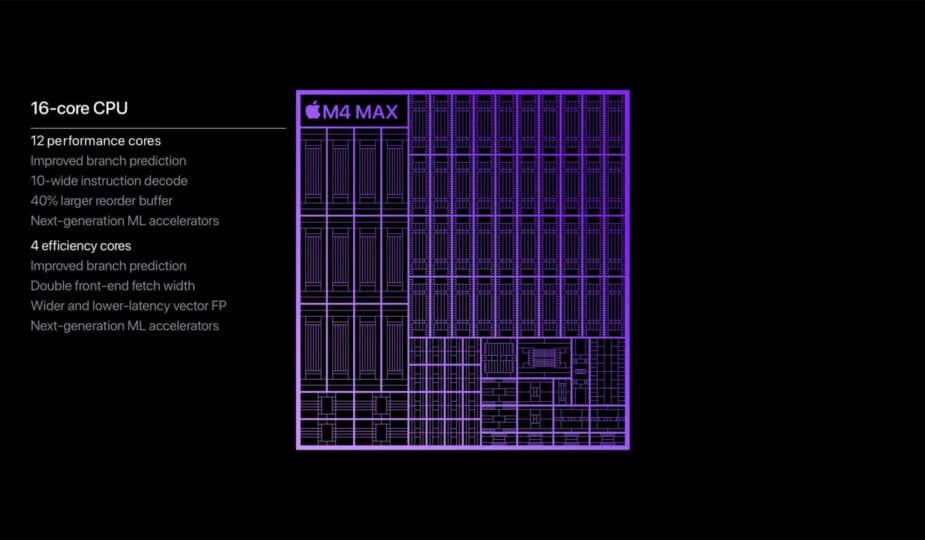
This week, Apple unveiled new MacBook Pro models with the M4, M4 Pro, and M4 Max chipsets. The new M4 Pro chip in the Mac mini has already shown some promising results, making it the fastest Mac ever. However, the M4 Max takes it to a whole new level and performs among the highest-performance PC chips on the market.
As a preface, all of these comparisons are based on Geekbench 6. There may be various workloads where the M4 Max may not be the best, but Geekbench is an easy comparison point until the new Macs actually get into people's hands, acting as a rough benchmark.
previous-apple-silicon”>M4 Max vs. Previous Apple Silicon
When Apple launched the new MacBook Pros, they claimed that it would be around 20% faster than the M3 Max, and that it would be the fastest laptop chip on the market. However, the early Geekbench results paint a more promising picture.
One of the first Geekbench results for the M4 Max shows a single-core score of 4060 and a multi-core score of 26675. In comparison, the M3 Max scored a multi-core score of 21097, meaning the M4 Max is about 26% faster, at least in Geekbench.
It also beats the M2 Ultra by about 24%, which scored a multi-core score of 21471.
M4 Max vs. PC Chips
We can also compare the new M4 Max to some of the best PC chips on the market, the AMD Ryzen 9 9950X, as well as the Intel Core i9-14900K – The best deals from AMD and Intel.
Looking through Geekbench, the best test for the 9950X is this one, where the chip scores 3,630 in single-core and 26,653 in multi-core, which is only slightly below the M4 Max’s multi-core result. The single-core score is also significantly ahead of the others.
On the Intel side, the top score, the Core i9-14900K, appears to have scored 3,144 in single-core and 23,044 in multi-core. The M4 Max is about 15% faster than Intel’s best desktop offering, and that’s just a laptop chip.
We’ve also yet to see Apple’s M4 Ultra chip, which should be about twice as fast as the M4 Max, since Apple fuses two Max dies together using its UltraFusion technology. This delivers nearly double the performance with minimal performance penalty.
We should first see the M4 Ultra in the middle of next year in the Mac Studio and Mac Pro.
Are you excited about the future of Apple Silicon? Let us know in the comments.
Follow Michael: X/Twitter, Threads, Instagram










